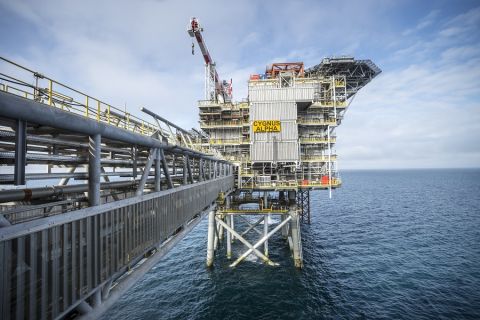Canadian oil production will grow by 1.4% annually until 2035, the Canadian Association of Petroleum Producers (CAPP) forecast on June 13, halving its estimate from five years ago due to constraints by a lack of new pipelines and inefficient regulation.
The Calgary-based industry body said output will increase to 5.86 million barrels per day (MMbbl/d) by 2035, a rise of 1.27 MMbbl/d from current levels, representing a 1.4% annual increase. That growth rate is less than half what CAPP projected in 2014.
Even so, it is higher than CAPP's forecast last year, which said Canadian oil production would reach 5.6 MMbbl by 2035. Most of the growth comes from thermal oil sands projects in northern Alberta.
Canada holds the world's third-largest crude reserves but its energy industry has struggled to recover from the 2014/15 global oil price crash.
CAPP forecast capital investment in the Canadian oil and gas industry would fall to $27.76 billion in 2019, compared with $61 billion in 2014.
Lengthy delays in getting new export pipelines built have led to congestion on existing pipelines and crude getting stranded in Canada's main oil-producing province Alberta.
That pushed the discount on Canadian crude versus global benchmarks to record levels last year and prompted the Alberta government to impose oil production curtailments.
"We need pipeline capacity and more efficient regulatory policy to help bring investment back to the oil sector and drive growth," CAPP Chief Executive Tim McMillan said in a statement.
CAPP compared the constrained growth outlook in Canada to a larger-than-expected increase in U.S. oil production, which the Energy Information Administration said will hit 13 MMbbl/d by the end of 2019.
CAPP's forecast comes amid close scrutiny of the Canadian government's treatment of the energy industry.
On June 12, Canada's Liberal government rejected the majority of amendments that would have diluted a bill designed to overhaul environmental assessments for major projects like pipelines, disappointing many in the energy industry.
"There is a simple reason why Canada is losing ground to the United States and that is market access and absent leadership," said Mark Scholz, chief executive of the Canadian Association of Oilwell Drilling Contractors said on June 13.
Next week, the federal government will decide whether to approve the Trans Mountain pipeline expansion, which was delayed after a Canadian court overturned the government's 2016 approval of the project. Trans Mountain will nearly treble the volume of crude shipped from Alberta to the British Columbia coast.
Recommended Reading
Hess: Pre-emption Provision Doesn't Apply to Buyout Deal With Chevron
2024-02-27 - Hess Corp. said on Feb. 27 that a pre-emption provision does not apply to its proposed $53-billion buyout by Chevron Corp. and it remains "fully committed" to the deal.
EQT, Equitrans Midstream to Combine in $5.5B Deal: Reports
2024-03-11 - EQT Corp.'s deal would reunite the natural gas E&P with Equitrans Midstream after the two companies separated in 2018.
Ithaca Energy to Buy Eni's UK Assets in $938MM North Sea Deal
2024-04-23 - Eni, one of Italy's biggest energy companies, will transfer its U.K. business in exchange for 38.5% of Ithaca's share capital, while the existing Ithaca Energy shareholders will own the remaining 61.5% of the combined group.
Eni, Vår Energi Wrap Up Acquisition of Neptune Energy Assets
2024-01-31 - Neptune retains its German operations, Vår takes over the Norwegian portfolio and Eni scoops up the rest of the assets under the $4.9 billion deal.
NOG Closes Utica Shale, Delaware Basin Acquisitions
2024-02-05 - Northern Oil and Gas’ Utica deal marks the entry of the non-op E&P in the shale play while it’s Delaware Basin acquisition extends its footprint in the Permian.


